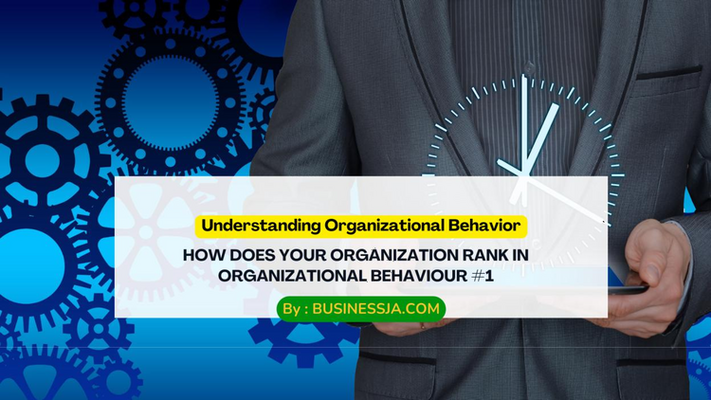
Organizational behavior is a critical aspect of any business, government department, or social group. It refers to the way individuals interact, perform, and function within an organized group with a particular purpose. In this article, we will explore the significance of organizational behavior, its study, growth, and the impact it has on productivity and overall success.
Understanding Organizational Behavior
To comprehend organizational behavior, we need to break down its two key components. "Behavior" refers to how individuals act, operate, or function in relation to each other. "Organization" signifies an organized group of people with a specific purpose, such as a business or government department. When combined, organizational behavior denotes the behavior of individuals and their functions, actions, performances, and interactions within an organized group, including business, government, or social entities.
Studies have shown that individuals do not always conform entirely to the expected organizational behavior. Conformity levels may vary, falling within a scale of 5 to 8 on a scale of 1 to 10.
The Study of Organizational Behavior
The study of organizational behavior dates back to 1920 when the Western Electric Company initiated research at their Hawthorn Works plant in Cicero, Illinois. The primary focus was to understand how workers' behavior related to their work environment. Although improvements were made in lighting, design, and overall environment, it was surprising to find that the key factor affecting organizational behavior was the interpersonal relationships between co-workers and their sense of appreciation from management.
Furthermore, the worker's behavior was closely tied to the organization's structure concerning various aspects such as work breaks, human relations, isolation, benefits, and the level of respect they received from their superiors. Interestingly, during the study, it was observed that the behavior of individuals changed when they knew they were being watched or evaluated.
The full psychological recognition of organizational behavior as an academic study came in the 1970s when the American Psychological Association (APA) acknowledged its significance. The Hawthorn study's findings formed the foundation of human resources professions, and these findings, along with APA academic studies, are now essential knowledge for individuals studying Human Resources programs.
The Growth of Organization Behaviour
Since its inception in 1920, the study of organizational behavior has evolved significantly. It has transformed into more structured and comprehensive programs implemented in organizations to boost productivity and create a more cohesive work environment. This transformation involves a blend of scientific, social, and logistical adaptations to optimize performance.
Results of these Implementations
Organizations aim to have employees who understand and comply with the rules and regulations. To achieve this, it is crucial for both workers and management to maintain clear boundaries while ensuring high productivity. Some organizations adopt a first-name policy regardless of position, promoting a more informal communication approach. On the other hand, some prefer a formal communication style.
However, the success of organizational behavior lies not just in setting the requirements but also in effectively managing and enforcing these rules and regulations daily. Understanding the different positions and roles within the organization is equally important for smooth operations.
What Happens when the Implementations are not Followed?
Respecting and understanding the organizational structure for behavior is not limited to just business settings; it is vital in other aspects of life, such as in a household. Just as children should adhere to family rules and norms, employees must comply with workplace guidelines. Failure to respect the organizational structure and display poor and disrespectful behavior can lead to chaos and reduced productivity. It erodes the fabric of civil society and fosters animosity, resentment, and a hostile work environment.
Whether at home or in the workplace, if you notice such behavior prevailing, it is essential to take corrective actions promptly. This evaluation and introspection are necessary to ensure that we continue to progress as civilized individuals, not reverting to the era of cavemen.
Fixing the Problems
Similar to maintaining a well-running vehicle, organizations must engage professionals to address behavioral issues effectively. Workshops, seminars, and training sessions can be organized with professionals who can guide and coach employees at all levels. These interventions will help to ensure that the wheels of the organization are well-oiled and that everyone adheres to the behavioral guidelines outlined in the Human Resources handbook.
Even in a household setting, regular family meetings can be held to remind all family members of the importance of respecting, appreciating, and treating each other with kindness.
Organizational behavior is a cornerstone of success in any setting, be it business or social. By recognizing its significance, implementing appropriate measures, and fostering a positive environment, organizations can achieve greater productivity, harmony, and overall growth.





